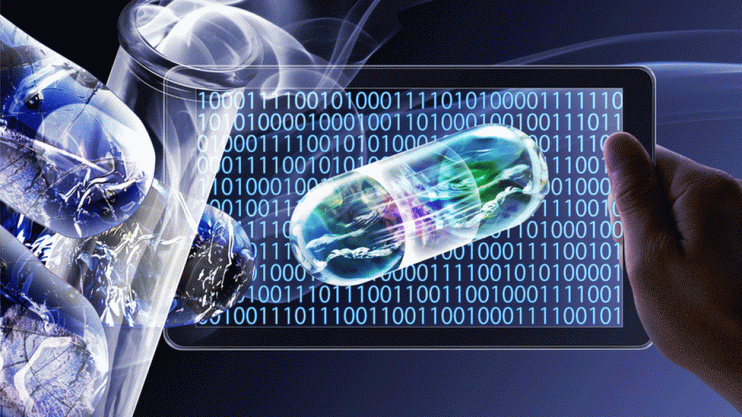
Your next GP might be Dr Alexa or Dr Siri
One of the ways that artificial intelligence is transforming everyday life is through combination technologies which amalgamate innovations such as machine learning, deep learning, computer vision, image processing, natural language processing, speech recognition and more into brand new applications. The most active innovator and adopter of these ‘magic’ new combinations is the global healthcare sector.
We are moving toward a world where, eventually, the genes of every person and everything, including all known diseases and infections, will be DNA sequenced. Where AI can draw from huge data sets to determine the exact combination of treatments and medicines that will be optimal for an individual patient based on their own genetic and biological characteristics. And where the process and accuracy of diagnosis and treatment will become self-improving as deep learning draws new data from every new decision.
Big Data Brings Big Changes
Genomic sequencing of all forms of disease is predicted to be complete within 20 years. With this avalanche of medical knowledge in the form of genomic, clinical and imaging data incorporated into one system, many clinical and treatment decisions will no longer be drawn from the judgement and experience of a single physician, but from cool, hard, data.
With a little innovation to enable self-testing, for example by connecting a sampling device to a smart phone, AI-based voice-assistants could be the equivalent of a GP, diagnosing the ailment, determining the best treatment and even issuing a prescription directly to a pharmacist, who themselves may shift to an Uber-style on-demand home delivery service when artificial intelligence removes a large proportion of human judgement from decisions.
Voice Activated GPs
Consumer-friendly voice assistants (VA) were introduced in the 2011 by the launch of Siri followed by Alexa in 2014. These systems are being continually refined using machine learning, which is optimising the way that machines can understand human voices as well as giving AI a better ‘bedside manner’ by allowing them to respond in a more natural way.
The technology behind Siri and Alexa is something that we all take for granted. These voice assistants work based on an “Automatic Speech Recognition” (ASR) system. ASR records speech and then breaks it down in real-time into phonemes. This is then analysed for meaning using natural language processing before AI determines a response. The fact that this can all happen almost instantaneously with a high degree of accuracy is remarkable.
Voice assistants have been adopted by healthcare institutions to respond to users seeking health information by providing tips, healthcare guidelines, health news, updates about hospital operations, first aid guidance and medical communications. During the COVID-19 pandemic Alexa released features that helped users set up healthy routines whilst locked down at home as well as providing information and guidance about COVID-19.
Improving Healthcare Efficiency
A recent report by Annals of Family Medicine highlighted that primary care physicians such as GPs currently spend more than 50% of their time working on electronic health records (EHR). A 2020 McKinsey Survey found that a tidal wave of patients hoped to reschedule their cancelled appointments once that the Coronavirus pandemic subsides. AI-powered programs can help to mitigate this ‘perfect storm’ of high demand and limited physician time by enabling new efficiencies within existing healthcare regimes.
Health-tech start-up Suki has developed an AI-based voice assistant specifically for physicians. Suki can search and retrieve data about a patient and then create treatment plans for patients based on their hospital visit. Suki is still in the pilot state, but the technologists behind it predict that voice assistants could reduce the time spend by physicians on medical notes by 60%.
One of the biggest impediments to the adoption of these type of AI-powered innovations is public acceptance. But with the likes of Siri and Alexa already welcomed with open arms into millions of homes, and with patients expecting more from healthcare systems that are constantly under strain, your next GP could easily be Dr Siri or Dr Alexa.
